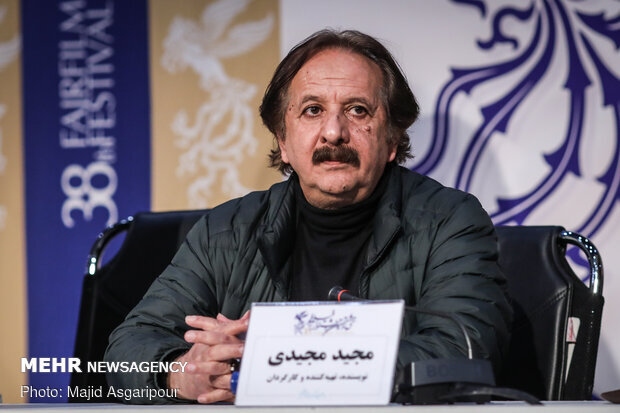

TEHRAN – Iranian filmmaker Majid Majidi said that the violent modern world is suffering from a dearth of a common humane language and a disregard of human nature more than ever.
He made the remarks during an international webinar on Iranian cinema with a focus on his three films held at the Complutense University of Madrid last week.
“Human nature is an everlasting and common characteristic of all mankind. All the prophets and Imams believe that the purpose of their message is to remind man and awaken him to his own nature,” Majid said at the webinar.
“It is quite understandable for everyone to use words like love, kindness, sacrifice and solidarity, things that can be associated with human nature. The language of today, which has become filled with violence, conflict and crisis, is void of human nature,” he added.
“Moreover, the cinema can play a very important and fundamental role in bringing people closer together because of its universal language,” Majidi noted.
He also talked about his visit along with a group of visually-impaired children to the forest area in northern Iran, and how his crew was impressed by the deep and inner encounter of the children with the world and nature, and this effect was so deep that it led to making his film, “Color of Paradise”.
Last week, several Iranian and Spanish scholars attended the webinar, which was organized by Iran’s Cultural Office in Madrid in collaboration with the Farabi Cinema Foundation and Casa Asia, a Barcelona-based center promoting Spain’s relations with Asian countries.
Farabi Cinema Foundation director Alireza Tabesh and Cinema Organization of Iran director Hossein Entezami spoke at the webinar.
Majidi’s “Color of Paradise” was screened on the first day and reviewed by Bernardo Herrera, a scholar from Venezuela, as well as Francisco Garcia and Iranian scholars Zahra Razi and Damun Afkari.
“The Color of Paradise” is a fable of a blind child’s innocence and a complex look at faith and humanity.
The second day was followed by screening and reviewing Majidi’s “The Willow Tree”, while “Baran” was screened and reviewed on the third day.
“The Willow Tree” is about Yusef, a blind middle-aged university professor who regains his vision after surgery.
“Baran” is set during recent times in which there are many Afghan refugees living on the outskirts of Tehran.
Photo: Majid Majidi attends a press conference during the 38th Fajr Film Festival at Mellat Cineplex on February 10, 2020. (Mehr/Majid Asgaripur)
RM/MMS/YAW
Related posts:
Views: 0
 RSS Feed
RSS Feed

















 February 28th, 2021
February 28th, 2021  Awake Goy
Awake Goy  Posted in
Posted in  Tags:
Tags: 
















